I’ve talked about the concept of
point of view in storytelling before, but as
this week’s page prepares to go live it’s on my mind again. Have you ever considered how much of good writing is information management? Not just in the sense of the information being given or withheld from the audience, but in the sense of what the characters in the story know at any given moment.
The need for effective information management in the story has been with us since some of our earliest surviving examples, hasn’t it?
Oedipus Rex wouldn’t go much of anywhere if the title character finds out Jocasta is his mother before all the murder and incest happens. The audience knows full well, but he doesn’t have a clue. Sure, there’s a mandate of fate involved, but Sophocles thankfully didn’t use that as an excuse for lazy writing. Shakespeare was another scribe who took great pains to make sure that characters knew and acted on only the information they had available to them.
Othello certainly doesn’t work if Iago’s many monologues detailing his evil plans are somehow overheard by the other dramatis personae, but his bond villain tendencies are confined to the folks watching the play, until of course it’s too late.
Have you ever been watching or reading a work of fiction and suddenly asked, “Wait, how did they know that?” or “Did they forget about that?” Well, I have, and unless a good explanation comes forth at some point, I’ll often feel let down. This management of character knowledge is something that I feel is at least as important to the immersion and suspension of disbelief in a story as Frodo Baggins not suddenly gaining the ability to fly like Superman.
Sometimes it’s rough to be faced with it, like in the aforementioned tragedies where you might want nothing more than to get between Desdemona and Othello and shout, “Just calm down and talk to each other!” You end up hating Hamlet for what he does to Ophelia, even though from his perspective he thinks she’s just another spy for his uncle and his co-conspirators, perhaps even worse than most because she’s trying to play on his past affections. She for her part has been told that Hamlet’s acting very strange and her father has implored her to try to use that past affection to try to find out what ails the poor boy. And it’s tough to watch it all play out in the tragic way it does, but damn if it doesn’t make sense.
Zombie Ranch has been going on for almost five years now, and I’m hoping I’ve still got a good track of who knows what at what time, and how that’s coloring their interactions. Like I said, I feel it’s really important. But I also recall seeing this current page and thinking, will readers react negatively to Suzie angrily telling Frank to back off from making Clearstream out as villains? From our more omniscient perspective, yeah, there’s some shady, shady stuff going on. From Frank’s point of view, he has some suspicions but nothing really concrete, beyond his predisposition to not like their presence. Then there’s Suzie, under stress from all angles, suddenly having to have *this* argument again not long after Frank agreed to back her up.
It’s a confrontation that doesn’t happen if the characters know what the audience knows (or for that matter, what the writer knows), but since they don’t, drama ensues. And as long as that makes sense from their perspectives, then we can love or hate them as we wish but still be satisfied with what’s occurring. True omniscience might make living their lives easier, but it’d pretty much put guys like me out of a job.
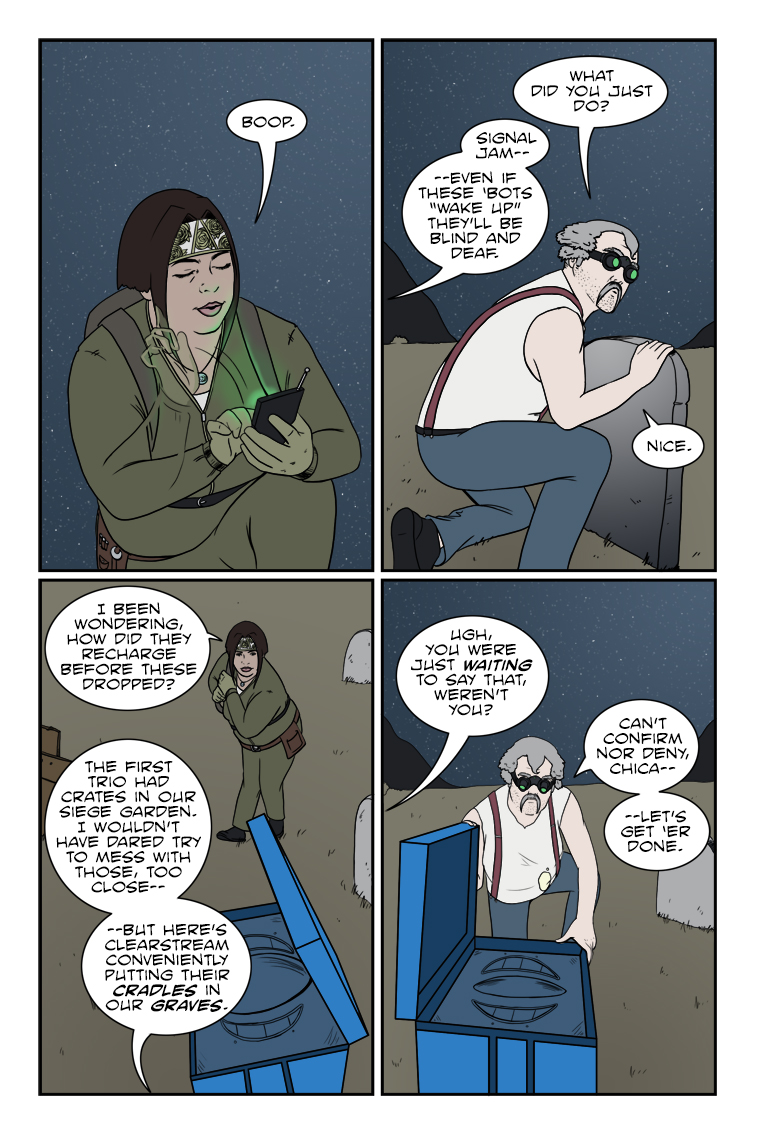
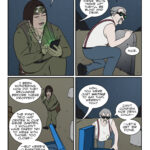
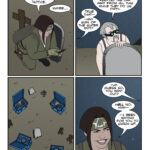
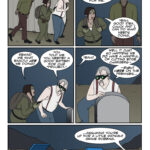
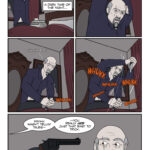
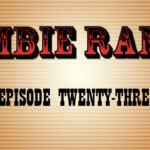
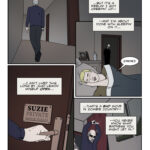
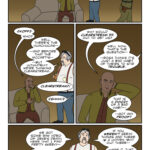
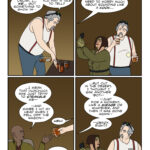
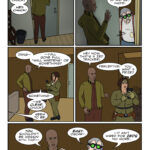

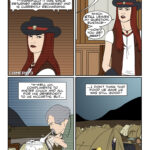
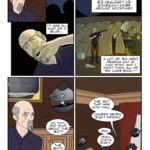
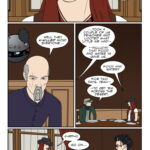
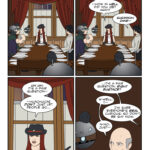
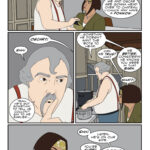
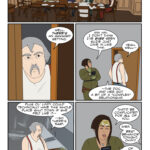
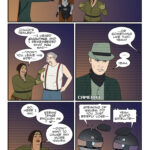
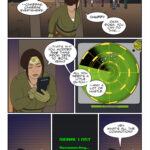
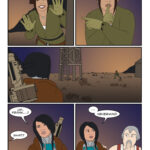
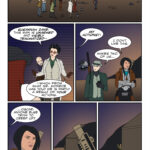








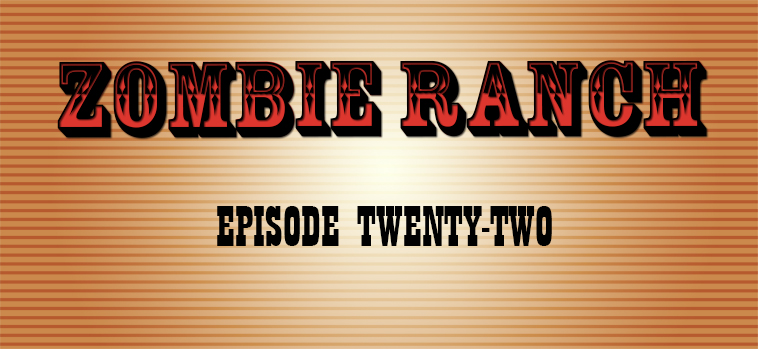
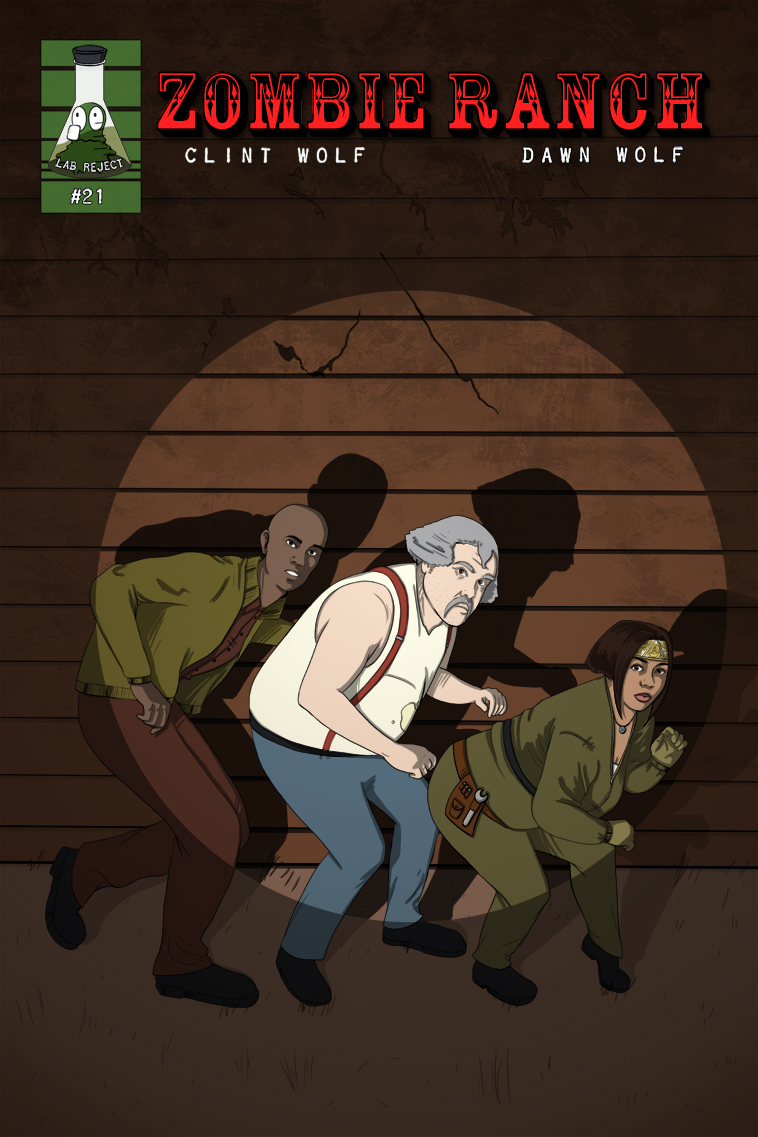
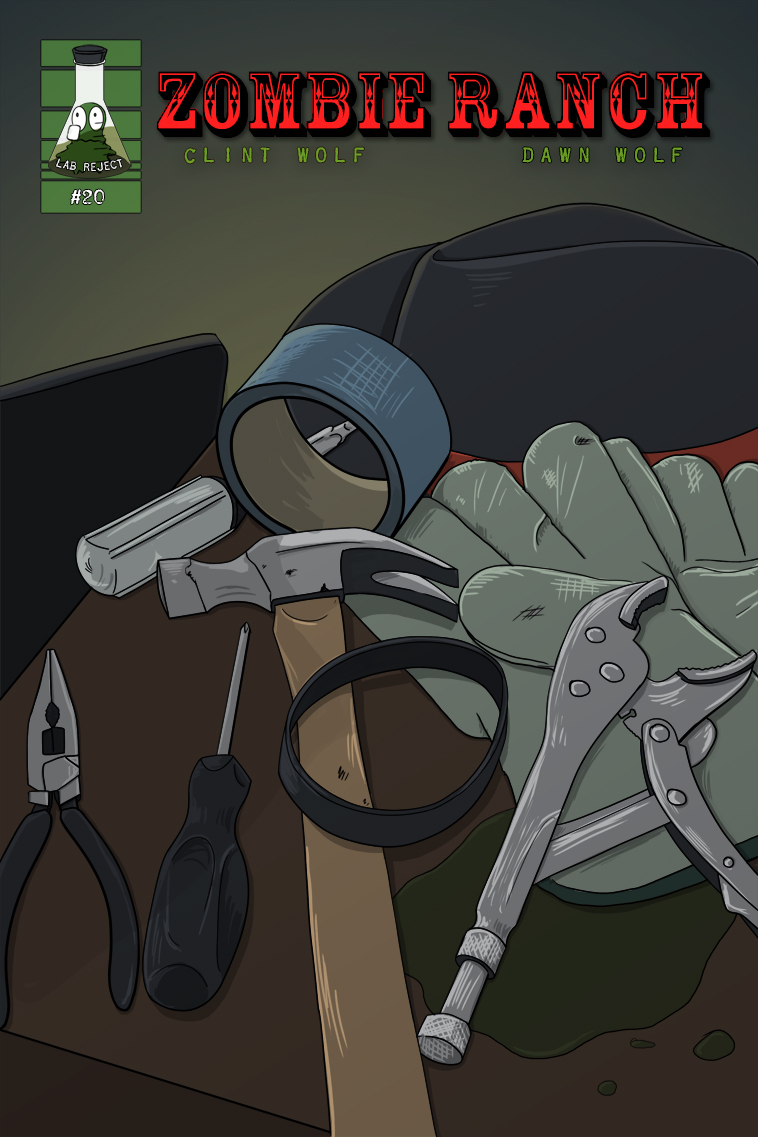
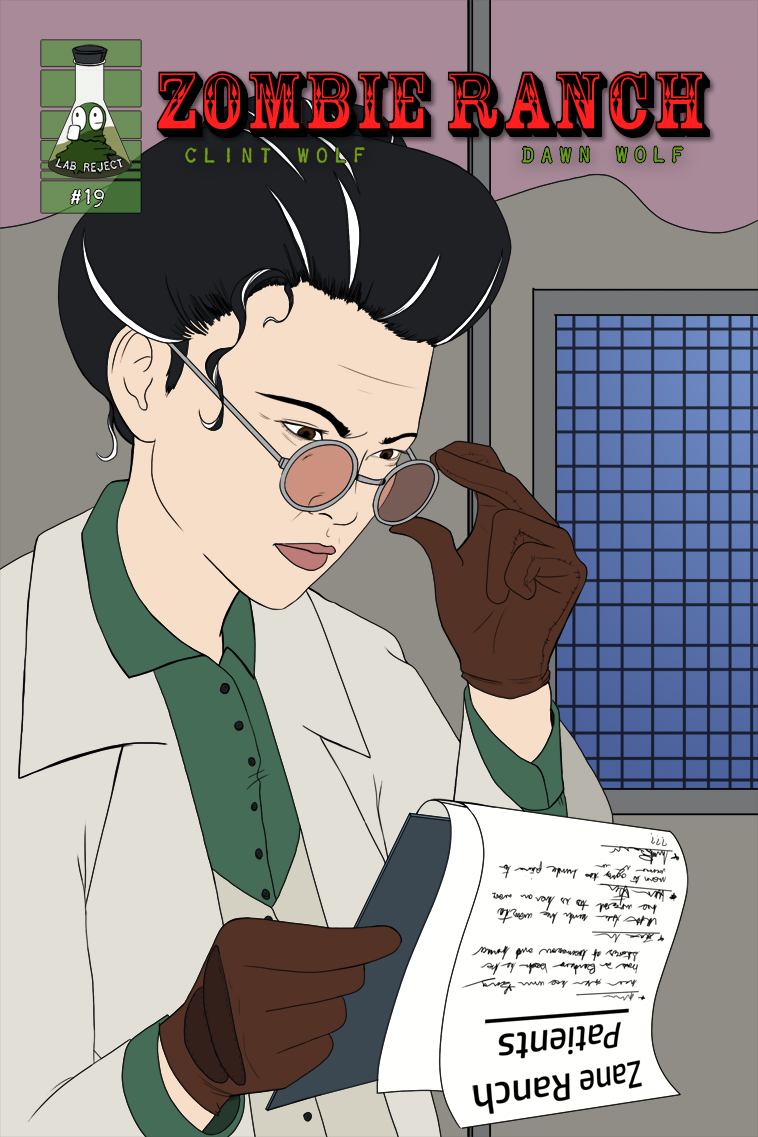
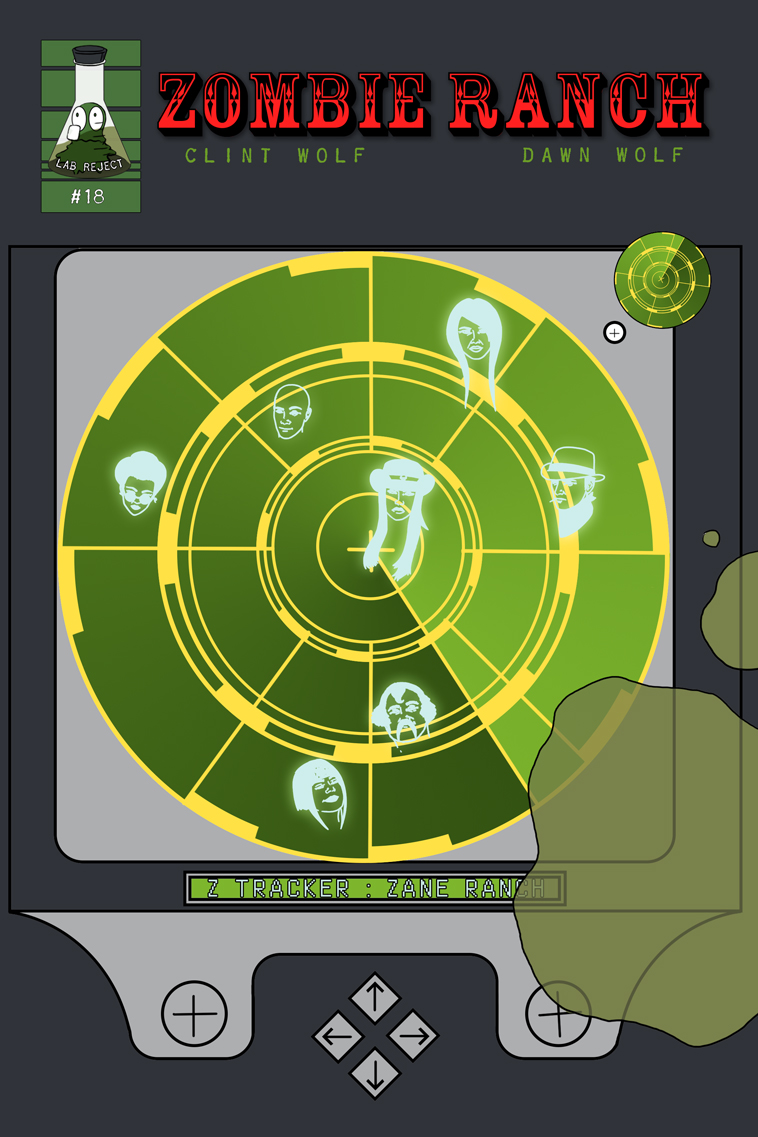
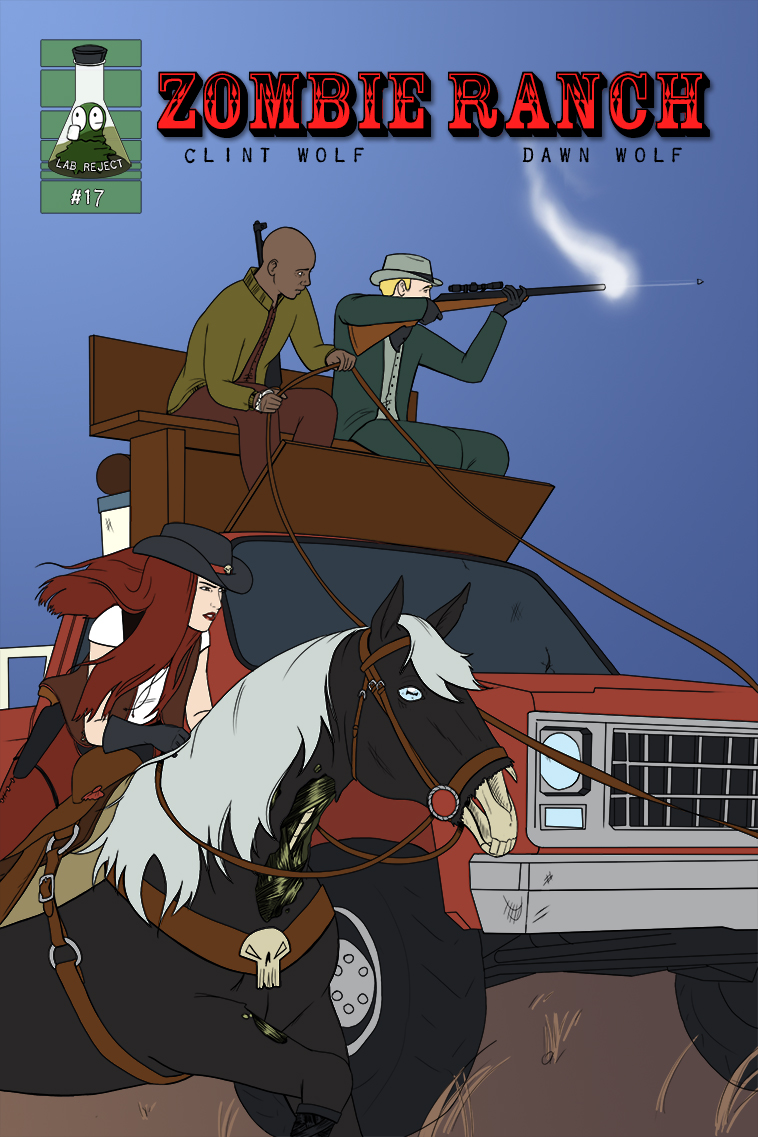
One thought on “543 – Cradles And Graves”
Keith
Oh lordy, they really are a great couple…though, I suggest adopting.